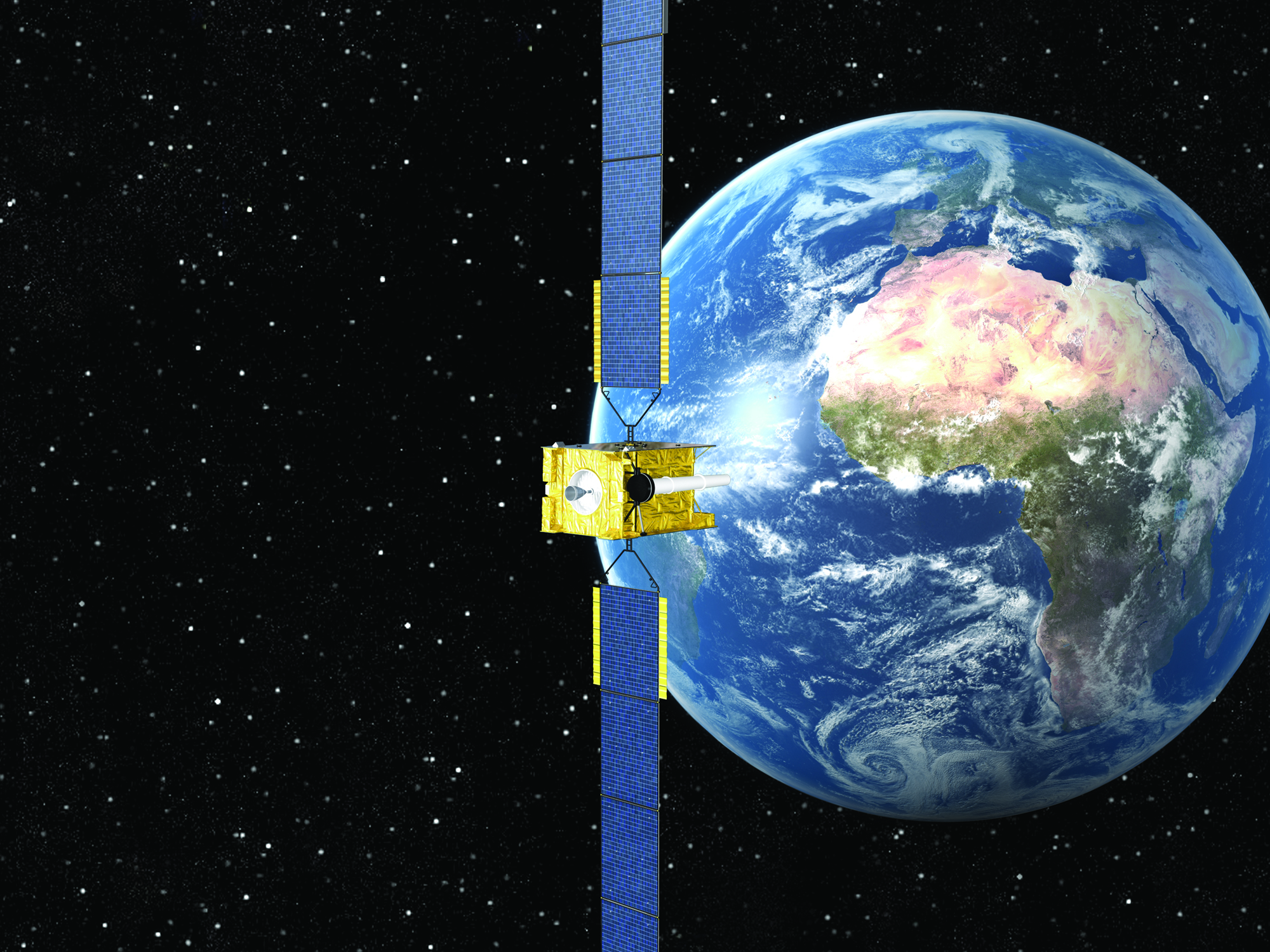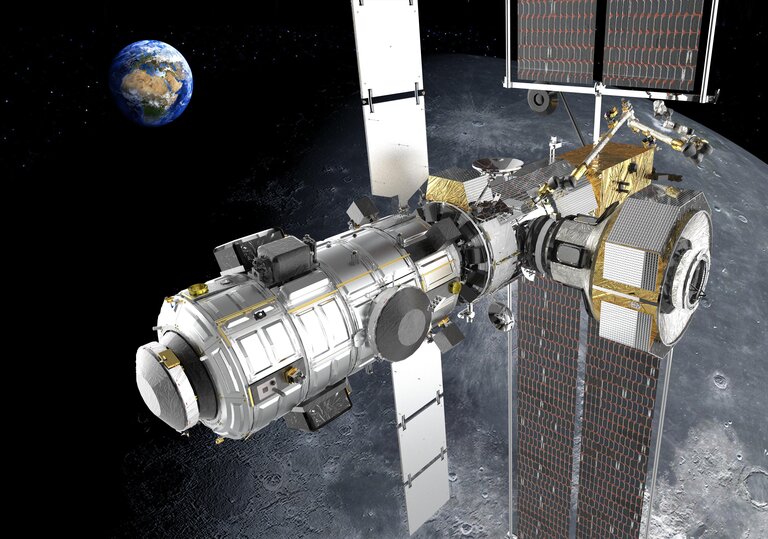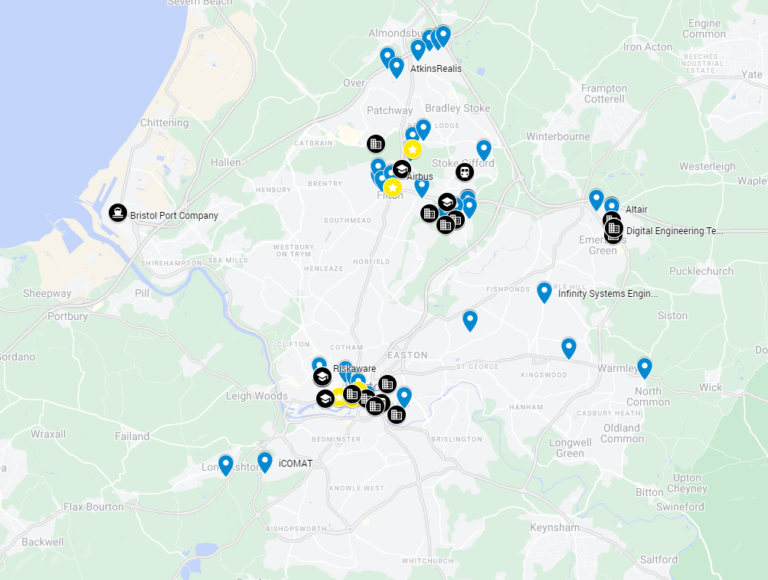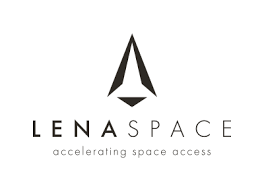
Space & Satellite Technology
We are a leading regional space hub in the UK
The West of England is home to a diverse space sector, with multi-national and SME companies active in the space ecosystem. In the last decade, space has transformed into one of the UK’s fastest growing sectors. Trebling in size since 2010, at the last count the UK space industry now employs over 52,000 people in all corners of the country and generates an income of nearly £17 billion every year (gov.uk).
 Image credit: Thales Alenia Space
Image credit: Thales Alenia Space Why invest in our region?
The Invest Bristol & Bath team offer extensive tailored support to companies interested in relocating and growing here.
We're one of the most capable aerospace clusters in the world
The South West is home to the UK's third largest aerospace cluster and is one of the UK's seven regional space hubs, boasting 11% of the nation’s space organisations (Size and Health of the UK Space Industry 2023).
The West of England, in particular, is a dynamic cluster of over 50 space-related businesses, universities, and research centres. This thriving ecosystem comprises:
- 10 Space Manufacturing – upstream activity organisations
- 9 satellite applications – downstream activity organisations
- 7 universities and research centres
- 11 consultancy, professional services and business support organisations
- 10 outreach and community engagement organisations
- 5 significant engineering consultancies
Professor Kate Robson Brown, Director of Jean Golding Institute, University of Bristol
The UK has a new National Space Strategy, which is creating a landscape of opportunity for research and development in the space science and engineering sector.
The West of England is particularly well-placed to harness those opportunities because we have such a long heritage of collaboration between high level researchers and our commercial partners.
Julian Lee, Executive General Manager, Nova Systems
I would say to any businesses looking to expand in the region, there are a number of advantages. Obviously, you've got access to that kind of really skilled and experienced talent that you might want.
Connectivity is really important. The fact that we've got a rail station that gets really easy, quick links to London is really good. And, also you've got access to an airport.
Ian Risk, Chief Technology Officer, CFMS (Centre for Modelling and Simulation)
If you're thinking of investing in the space sector here in the UK then the West of England is one of the prime areas you should consider.
The advanced engineering sector has really grown from the early days of the likes of Brunel and Concorde.
That capability has snowballed over the last few years. The growth in the industrial footprint in the academic capability in the region and with the arrival of the Science Park, we have the likes of ourselves at CFMS, we have The National Composites Centre.
We have the new institute from Bath University as well, all of which is providing an ecosystem that these companies that want to come to the region can access and access efficiently.
Roger Ward, Chief Technical Officer, Thales Alenia Space
So the space industry is one of those things where no one person can know everything. So we depend upon working with people in the region who can support us. So the universities have got very different skills and very different technologies, and they can be very useful.
The Catapult has got different technologies as well. And then we often work with SMEs and other local industry who can bring the specialisations that we really need to make our missions a success.
Julian Lee, Executive General Manager, Nova Systems
From our base here, we're able to support our activities in upstream, midstream and downstream parts of the sector. In the upstream sector, we're supporting our client, the Norwegian Space Agency, with the safety and regulatory work associated with their vertical launch from The Andøya Space Centre.
In the midstream sector, we're able to support activities operating in Australia from our ground station we have there, and in the downstream sector, we're operating and supporting some of our software products.
Stuart Donovan-Holmes, Head of Defence & Space, National Composites Centre
So in our space sector team, the key areas that we focus on are the SmallSat launch vehicle structures. We also look at propellant tanks for spacecraft, the use of advanced materials for applications in space, so making sure that the composite materials we use are more durable, use less material so more sustainable.
And we also look at in-orbit manufacturing, which is a key area for us, which we think is really cutting edge.
Professor Kate Robson Brown, Director of Jean Golding Institute, University of Bristol
There's a wide range of expertise in space science and engineering at Bristol represented pretty much across all faculties. There's some very large and established groups, for example, in engineering where there's work going on in the area of materials, design deployment for low-Earth orbit applications, engineering design, launch and propulsion systems, and also robotics.
And then outside of engineering, for example, in the science faculty, we have a wide range of expertise from data science and mathematics and algorithmic development on one end, which is really useful for understanding
Earth observation images, for example, all the way through to astrophysics and deep space exploration.
Julian Lee, Executive General Manager, Nova Systems
So the region is great, both from attracting graduate talent and also experienced hires as well. It's a great place to live, and so we find it easy to attract people to come and locate here, really from around the world.
Stuart Donovan-Holmes, Head of Defence & Space, National Composites Centre
I came over from South Africa to study at the University of Bristol because I had a great passion for aerospace and astronautics, and this to me was the place to be because it was outstanding anywhere else in the world. And I've been here 18 years now and I have no intention of going anywhere else because this is where it's happening and this is where the ground-breaking work is.
Graham Harrison, Director of Strategic Partnership, National Composites Centre
Our aspiration is not to be a parochial initiative, it's to be part of a national and an international network.
Eric Sanders, Senior Business Development Executive, Invest Bristol and Bath
Invest Bristol and Bath are the inward investment team for the West of England region. We've provided support to over 450 companies throughout their relocation and expansion journeys.
We do this by providing free support, including introductions to key stakeholders and industry experts, as well as providing information around talent, ecosystem and property in our region.
So whether you're an innovative start-up or an established multinational organisation, contact the team, Invest Bristol and Bath to find out more about why the West of England is the place for space.
Our vision is for the West of England to be known globally for its thriving space sector.
We have strong ambitions and priorities
The potential for growing the space sector in the West of England has been recognised through the development of Space West. This partnership between the National Composites Centre (NCC), the West of England Combined Authority, research institutions, and leading businesses is one of only seven to receive funding from the UK Space Agency.
This collaboration has developed the West of England Space Strategy, which identifies regional opportunities and supports innovation and growth in the space sector. Space technology is crucial for achieving the goals of the region, including net zero, future transport, smart cities, digitalisation, and skills development. The strategy was created in collaboration with the UK Space Agency, Satellite Applications Catapult, and partners such as local businesses, the Centre for Modelling and Simulation (CFMS), the National Composites Centre (NCC), the University of the West of England, the University of Bristol and the University of Bath.
Read our space strategy >
What we offer
Get the latest facts and figures, view centres of excellence in the region and learn why the the South West of England is home to the largest aerospace cluster in the UK. We're here to unlock your business potential in Bristol & Bath.
Talk to an expert














